Ghana. The Church has a strong voice in Africa.
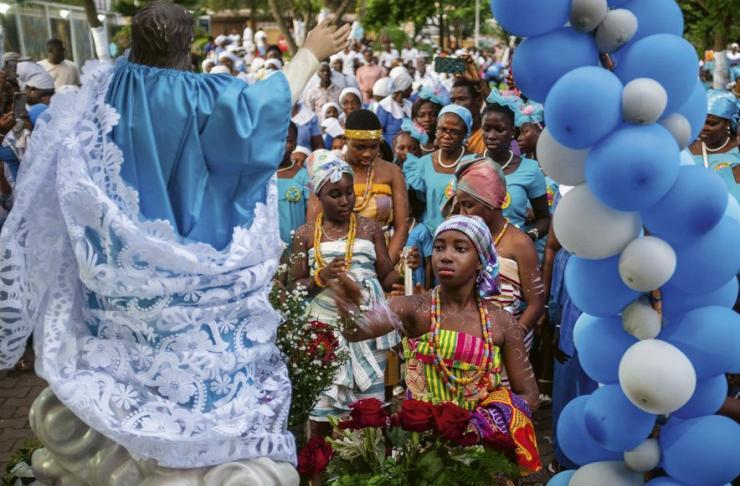
The challenge of the Pentecostal churches. Young people who only want to leave. The importance of having African missionaries as a stimulus to the local church. We spoke with Father Saa-Dade Ennin provincial superior of the Society of African Missions and president of the Conference of Major Superiors of West Africa.
How do you see the situation of the country?
We can analyse the situation at different levels. Since 1992, Ghana has had a democratic regime which has worked very well and has given much hope. The change of government in 2000 gave people hope, and the same happened in 2008 with another peaceful change.
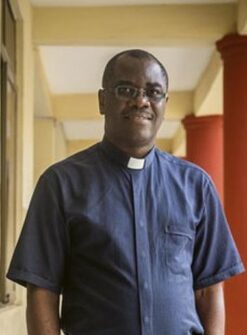
Father Saa-Dade Ennin provincial superior of the Society of African Missions and president of the Conference of Major Superiors of West Africa.
Ghanaians were happy that stability had allowed the country to develop and the economy to improve. But in 2020, COVID arrived and then the war in Russia, which worsened an already negative situation. The economy is not doing well. Inflation is very high, and people are desperate. Even more serious is the fact that people realize that politicians no longer work for the good of the country but for their own interests.
What is the role of the Church in this crisis?
People expect the Church to speak out on socio-political issues. When the Church says nothing, people suspect it may be involved in corruption and withdraw their trust. The Church has a strong voice in Africa that should be used since it can influence society.
In this context, what challenges does the Church face?
Ghana is a very religious country. About 71% of the population are Christian and about 1% are Muslim. About 1% are non-believers and the rest belong to other religions. There is no official ceremony that does not begin and end with a prayer. But, at the same time, this religiosity does not translate into public life.
What kind of faith are we practising? Some say that traditional African religiosity has been transferred to our confessions.
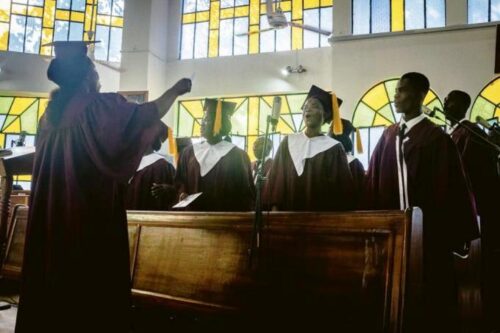
The choir of Our Lady of Assumption parish in Accra.
People want a faith that puts food on the table. The Christian does not pray to go to heaven but to get work, health and money. Our faith has become materialistic, and we have a lot of work to do to lead people to another kind of spirituality, to a more mature faith. Pentecostal and charismatic churches are booming. They have a lot of influence and preach their ‘prosperity gospel’.
In what sense do the Pentecostals preach ‘The Gospel of Prosperity’?
Pentecostal churches indicate what steps to take to get rich, to travel to Europe or the United States or to have better health. If you follow these steps, God will give you what you want. Their messages resonate with young people, who stick with them until they become disillusioned when they realize they don’t get what they want. Sadly, this is the kind of Christianity most people practice, one that tells you it will solve your material problems. It is with this that we of the traditional Churches – Catholic, Presbyterian, and Methodist – are confronted.
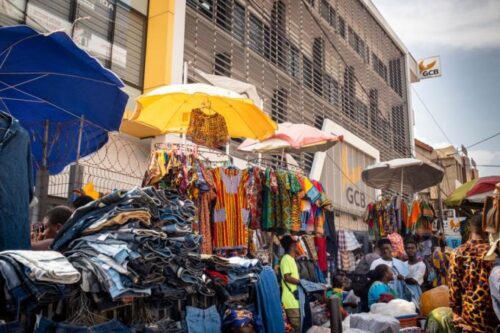
City Market in Accra. “The Christian does not pray to go to heaven but to get work, health and money.”
The challenge for us is to try to educate people and make them see the fraud behind it. There is no Christianity without the cross. If you want to be rich, you must work for it. Being Christian implies ethics and spirituality. If you accept this lifestyle, you will receive spiritual benefits, not excluding material ones, because Christianity also teaches you to work hard, with honesty and hope. What our Church has to offer right now is integrity and credibility. Another matter is that, compared to the Pentecostal Churches, the Catholic Church is not so visible. We do very good things everywhere, but we make little noise. We don’t advertise. They are constantly on the radio, TV, and social media, so we are trying to figure out how to be more present on these platforms. If we don’t tell our stories, the other stories will drown out the truth.
Where did these Pentecostal churches originate?
They are related to traditional religiosity, where people went when they had a problem. If you were ill or the crops were not going well, you went to the priest to find a solution. In the late 1970s, the Ghanaian economy failed and in the 1980s the economic situation was very bad. People struggled to survive. It was then that ‘American gospel evangelists through motivational prosperity speakers’ began to appear, copying from televangelists who said that if you were depressed or confused, they would pick you up and keep you going.
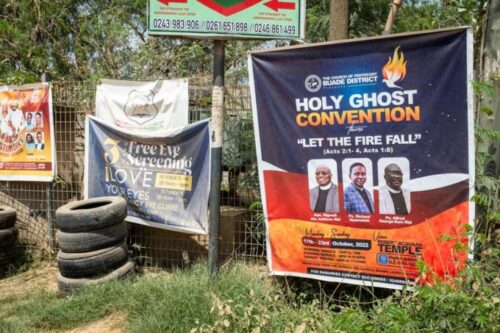
“Pentecostal churches indicate what steps to take to get rich, to travel to Europe or the United States or to have better health”.
That’s how it started and now it’s everywhere, as a professional company. They tithe their faithful, they create their television channels to sell themselves by making promises and attracting many young people, who will be their future donors. They arrange attractive activities and lively gatherings in which they dance, sing, and are not concerned with theological matters. They are concerned with you, with God and with how to be successful in life. They are churches that first help you and then benefit from it. All of this is in line with the traditional mentality, and for me the great challenge for the Church today is to convey to young people that our spirituality and our way of living Christianity can really help them in their lives.
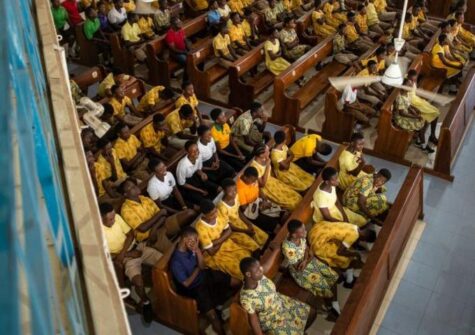
Celebration for young students in a parish.
What is the situation of the youth?
I used to see that young Ghanaians had a lot of hope for the future: they made plans to study at university and those who went abroad thought of coming back to work here. There was some hope that things would improve, and those in power helped convey that hope. But that enthusiasm has disappeared. Now they are in a hurry to get money and leave for Europe or the USA. They are still innovative, creative, and hardworking, but the atmosphere does not encourage them to thrive, and their first thought is to leave.
European missionaries are becoming fewer and those from Africa are increasing. How do you evaluate this situation?
The transition from expatriate to local missionaries is something that must happen. The local person knows their context better. No matter how much the stranger opens his eyes, he won’t see the whole picture. But there are difficulties in this transition. The first comes from the fact that Europeans get a lot of support from their home countries to build infrastructure, but the locals don’t have this support. We must educate the Ghanaian people to contribute to their church. Another challenge is that the expatriate missionary comes to evangelize and comes with the impulse to go to new areas, to go from village to village building churches and forming communities, with the intention of making the mission grow, to expand it. But local priests often lack this impulse and tend to stay in parishes without the mentality of going to new areas. That is why I consider it important to continue the presence of expatriate missionaries. I also think it is important to have missionaries from the various congregations but who are Africans with that missionary desire to go to other places.
Text and Photos
Javier Sánchez Salcedo



